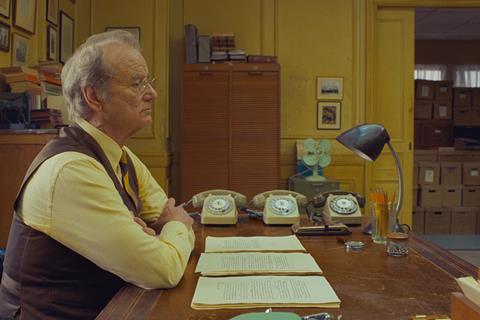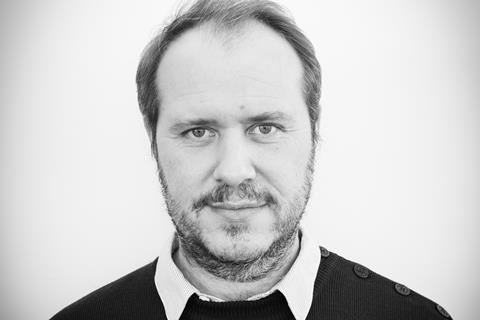[ad_1]

The Film France film commission has moved under the direct control of France’s national cinema agency, the CNC, as the organisation significantly ramps up efforts to transform France into a major international production and locations hub.
Film France previously operated autonomously even though it was bankrolled by the CNC.
The CNC has also launched the new “service de l’attractivité”, or attractiveness department as part of the organisation’s drive to better promote the competitiveness and attractiveness of all aspects of France’s film, TV and video game sectors at an international level.
French producer and locations manager Mathieu Ripka is now heading both departments.

“Film France will continue to be the one-stop, shopfront for international productions shooting or enquiring about shooting in France. Its activities remain broadly the same as before as do many of the staff members,” Ripka explained.
The attractiveness department will focus on international outreach. It will also coordinate with all the different operators in the French film and TV production sectors and in particular the country’s network of local film commissions.
The new structure has been given an extra €800,000, on top of Film France’s previous budget, to finance a raft of new initiatives. These include a new promotional campaign, due to launch in 2022, an enlarged presence in Los Angeles, and the extension of promotional activities to include the domain of video games.
The TRIP factor
Prior to the Covid-19 pandemic, France had been already seen its profile as an international shooting location begin to grow in recent years, thanks in large part to the introduction in 2009 of the Tax Rebate for International Production (TRIP).
Originally offering a rebate of 20% of the eligible production spend to a cap of €4m at its launch in 2009, this has since been raised to 30% of eligible spend to a cap of €30m, and 40% if a substantial amount of VFX work is done in France.
Large-scale international productions touching down in France in recent years include The Last Duel, The French Dispatch, Stillwater, John Wick 4 and Mission: Impossible – Fallout. The country has also started to catch the wave of high-end drama boom to host the shoots of shows including The Serpent Queen, Emily In Paris, Atlanta and Modern Family.
Ripka acknowledges there is a widespread international belief that France remains an expensive place to shoot.
“That’s what people think but when you actually look at the numbers taking into account what’s on offer here and the elevated cost of crew in places like the UK, France ends up being very competitive,” he says.
“There is also our savoir-faire and our technician and talent pool is one of the best in the world, that’s why directors like Wes Anderson, Ridley Scott, and most recently David Fincher, like to shoot here.”
The new attractiveness department and Film France now come under the remit of the CNC’s digital directorate, with Ripka reporting to its director Vincent Florant. The directorate oversees the CNC’s support for France’s digital and technical industries, including its film and TV studios, and manages the TRIP.
“All these areas are at the heart of France’s international attractiveness and in turn, this international attractiveness is at the heart of the CNC’s overall strategy,” said Florant.
Wider French recovery plans
He notes that the new international drive ties in with the France 2030, Covid-19 recovery investment plan, which aims to revitalise the country’s industrial sectors through innovation and green technology.
Under the scheme, €600m has been earmarked for the film and audiovisual industries to be invested from 2022, over the course of five years, in capacity building, skills training and innovation across the sector.
Florant suggests this offers the perfect opportunity for France to modernise its studios and bring on fresh capacity, which would put the country on a more equal footing with its neighbours in terms of studio space.
In a separate initiative, the CNC launched the €10m “shock of modernisation” initiative earlier this year aimed at projects that created new studio spaces, updated existing sites or involved building infrastructure in the domain of digital production, at the same time as respecting or encouraging sustainable development.
After a call for projects in January, 20 winners were announced during the Cannes Film Festival this July. They included eight studio-based initiatives, such as the city of Nice’s project to renovate its historic Studios de la Victorine and another 12 projects supporting companies involved in post-production, animation and special effects.
Florant cites the zero-energy drive of Provence Studio in the South of France, involving 28,000 square metres of solar panels, as an example of the sort of project the CNC had wanted to encourage.
He adds that the €10m ‘Shock of Modernisation’ funding line had generated another €160m in private investment, and suggests the money being put on the table as part of the France 2030 plan will have a similar impact.
“The over-arching strategy is that this public money will draw in private investment,” he says.
Florant also reveals the CNC will be focusing its international attractiveness drive on three geographical areas: Paris and the larger Ile de France region, the Mediterranean from Nice to Montpellier and the Hauts de France region bordering Belgium and also close to the UK.
Both Ripka and Florant acknowledge the last two years have been a challenging time for France’s locations sector due to the pandemic.
They emphasise the fact, however, that the local film and TV industry has been running at near full capacity since June 2020, thanks to a special public-private indemnity fund covering French productions against Covid-19 related losses.
“This means the sector is completely up to speed and ready to welcome international productions once they do start coming back again as before,” said Florant.
[ad_2]
Source link
